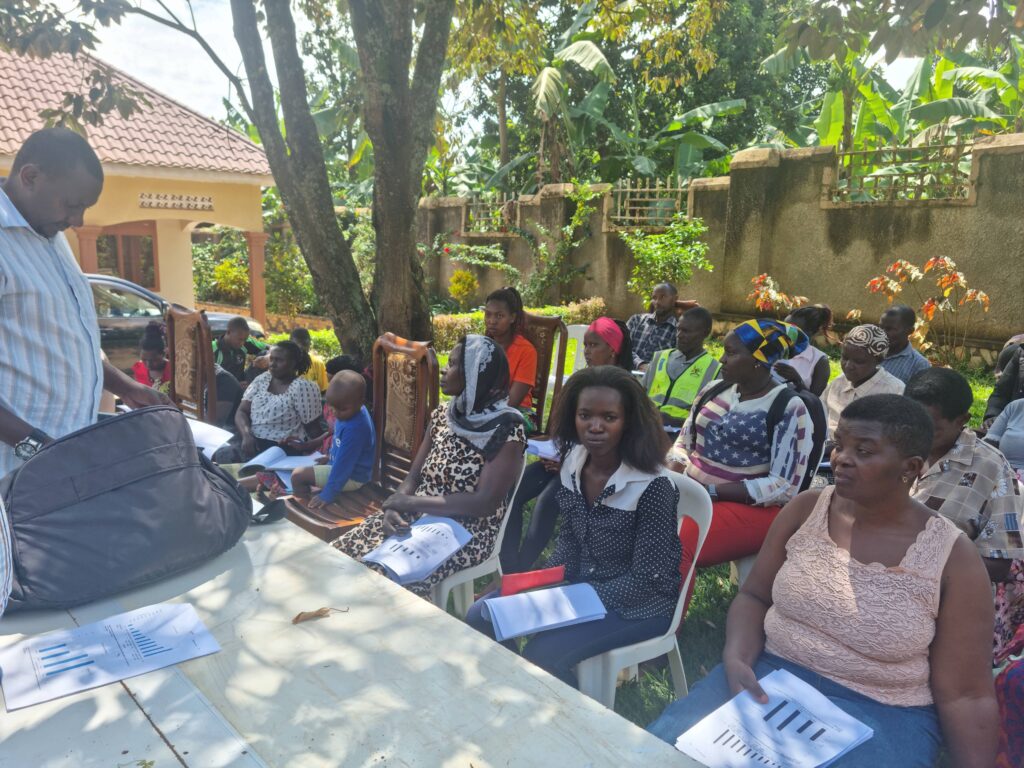

Capturing long term adoption and impacts of a decade of farmer training in Uganda
May 16, 2024
The Crawford Fund Western Australia Committee recently provided follow-up funding to capture the impact of supporting a decade of farmer training in Uganda.
Between 2012 and 2019, the WA Committee funded a series of farmer training workshops in Uganda by David Collins, Dr Innocent Muhereza and their colleague Dr Deb Pritchard. Over 300 farmers attended these workshops which focused on nitrogen as a limiting factor to improved yields in the Kampala, Namere and Wiakiso districts. Nitrogen sources were identified and application rates demonstrated in small field trials established by the farmers on their own properties.
David and his colleagues returned to Uganda in November 2023, to conduct a follow up survey of a sample group of the farmers they previously trained to ascertain what changes if any had occurred over the past decade in crop yields and family incomes since training workshops had commenced.

“The main aim of the project was to interview at least 30 landholders who had attended previous training workshops held between 2012 and 2019,” said David who is the Plant Nursery Production Manager Consultant at the Noongar Land Enterprise, Boola Boornap Nursery in Northam Western Australia.
“Due to the weather being the big wet season (making country road travel precarious) we held group farmer meetings in central locations and then divided into smaller groups to complete the questionnaire. Over 60 farmers attended the meetings and 43 were interviewed and their responses recorded,” he said.
“The overall responses were very encouraging with 100% indicating they had achieved higher yields which had impacted positively on their living standards. Farmers were now using crop rotation including legumes. All sources of organic N were being utilised and inorganic N sources used as a top up if required. Older farmers were able to grow enough food for themselves on smaller areas which required less physical work,” said David.
“All of the workshops since 2012 have been made possible largely to the local Ugandan contacts Dr Muhereza made while studying at Mackerere University and working in Uganda with the Ugandan Cooperative Alliance based in Kampala Uganda. These contacts have been maintained and developed for the past decade and have enabled a trusted network of lead farmers and educators in the training area and beyond,” he said.
“One of the main aims of the Crawford Fund is improving food security in developing countries. The participants of the program have reported yield increases of up to 400% above previous practices this has lead to improved food security as well as higher family incomes where surplus crops have been sold,” said David.
“The project has also trained lead farmers to run their own workshops and supplied training materials which has since enabled a further 550 farmers to attend workshops,” he said.
The long-term nature of this projects has allowed links to be established between these lead farmers and also academics at Makerere University and the Ugandan Cooperative Alliance Kampala. Presentations have also been made to various groups at Curtin and UWA to give updates on the progress of the program.
“We would like to thank the Crawford Fund especially the WA committee for their support over the past decade. The training workshops have been a success as recorded in trial results and now farmer feedback for over 300 small landholders (75% being women). This model of training could be rolled out on a larger scale in Uganda and other African countries,” he concluded.




 0
0